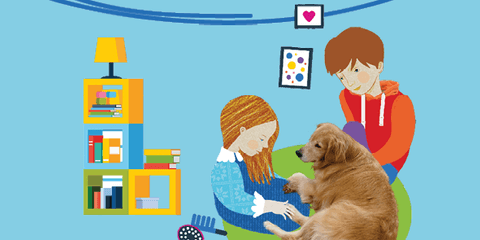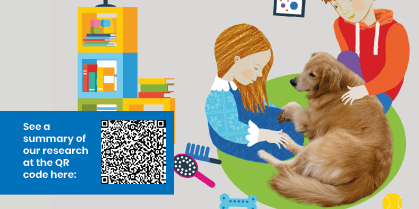“Children became very adult in an instant”: the psychological support needs of refugees
Halyna, an educator at a refugee integration centre, speaks about her own experiences as a refugee from Ukraine.
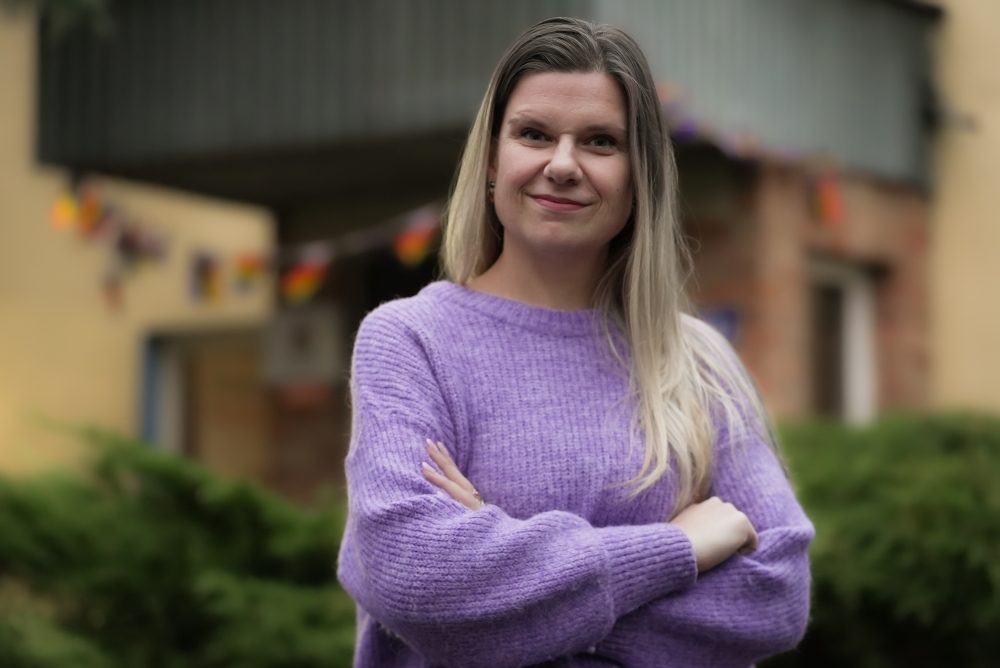
Halyna explains the benefits of support groups for both her and her daughter. © Plan International
Halyna, 35, came to Poland from Ukraine in March 2022 with her eight-year-old daughter. They are based in a town in southern Poland with over 100,000 inhabitants. Halyna received support from HumanDoc Foundation, Plan International Poland’s partner, at one of its refugee integration centres. Now, she works as an educator at one of these centres.
As a mother herself, but also as someone who works with children, she knows the psychological impact that the experience of war and displacement can have on the youngest who flee the war in Ukraine.
“Children became very adult in an instant,” says Halyna. “They talk about topics that children their age don’t have to talk about. At the beginning, they weren’t interested in toys, they were only interested in the question whether everything was okay, whether someone had replied, whether there was an alarm now [in Ukraine].”
When she got psychological support, Halyna says she became more able to deal with being displaced from her home, and to provide her daughter with support.
“After getting psychological support, I saw from my daughter’s drawings that what I didn’t tell her about the war, she knew anyway.”
“[That is why] I have to work with a psychologist, and the psychologist has to talk to [my daughter]. I also have to change my behaviour towards my child a bit, and we have to talk about [the war].”
“Obviously not about the number of casualties and so on, but she needs to know that there is a war and have hope that the war will end.”
The importance of psychosocial support
Halyna now works at a refugee integration centre run by HumanDoc in partnership with Plan International Poland, but after arriving in Poland, Halyna herself went to various group support events, and knows the benefit that they can have.
“When I saw on Facebook that there would be an integration centre open in Opole, I signed up straight away to all the events that were on offer,” says Halyna. “Just to meet people who spoke the same language as me.”
She also went to workshops together with her daughter. “We make the most of every opportunity. We went to language classes, we went to other workshops,” says Halyna. “We do everything to be psychologically stable.”
Both child and adult refugees can get support in many ways at integration centres, with psychological support, individual therapy sessions and the ability to attend other group sessions and workshops. These include art therapy, language classes or creative workshops. They are also some of the services that are offered at the refugee integration centres run by HumanDoc Foundation in its child protection project with Plan International Poland.
“[My daughter and I] go to classes and workshops together, and that’s very good because she feels safe,” says Halyna.
Since February 2022, over 1.7 million refugees from Ukraine have been registered as living in Poland. Around 950,000 are still living in Poland, and 40% of these are children. In Plan International’s consultations with young people from Ukraine in Poland, psychological support is often mentioned as necessary. With so many child refugees in Poland, many others also need to be able to get mental health and psychosocial support services.
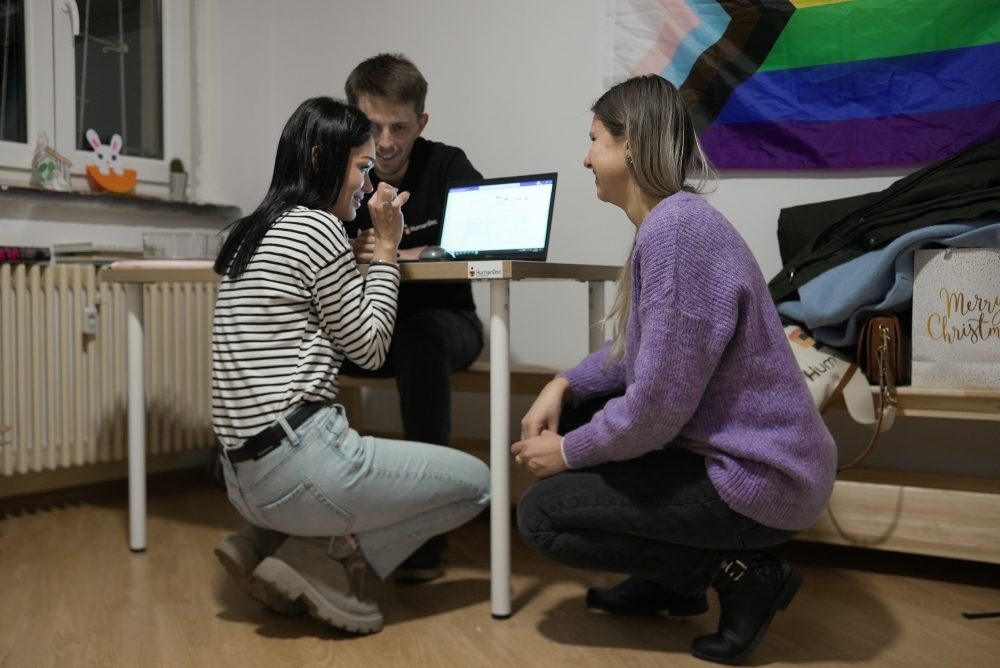
Being a refugee woman in Poland
“For me, as a woman, the greatest threat now is the situation when I have no influence on what happens to my child,” she says. “For example, there is a club for children at school, but I’m still at work at 5, and sometimes it would be nice to have a place where she can stay for another 2-3 hours while parents are at work. This is the most difficult challenge for women who came with children.”
Halyna worked as a teacher in a school in Ukraine, and now works as a teaching assistant at a school in Opole and in the evening as an educator at the integration centre.
“When I start work at 7, I need to get [my daughter] to school for 7 and then straight away get to work.”
Halyna also attended a women’s club run by HumanDoc, where women can meet in a safe space and take part in activities, but also where if needed women can get information and support on gender-based violence or abuse.
“Many Ukrainian women and girls came to Poland without knowing what abuse is,” she says.
“The women’s club is a place where women can come to talk about many topics. It is run so that women are not afraid to come to the club. They do not think, ‘we will come and now they will be talking about this topic’. Instead, it’s always through calm conversation and personal experience that these topics arise, and the person who runs this club introduces the topic of violence very well.”
“This is a club that really gives information to women who came from Ukraine and do not know the system in Poland, how they can defend themselves when they have become victims of violence or witnessed such violence.”
HumanDoc runs seven such women’s clubs in Poland, including one recently opened in Warsaw, with the support of Plan International.
When asked if she has any message for women and girls from Ukraine living in Poland, Halyna says to go to organisations that can support when needed.
“When sometimes you don’t know what to do, there are people who can support you,” she says. “Look for organisations that have psychologists. Because sometimes when you don’t have the answer, there are people who can help you find the answer. If you have questions on any administrative or other official matters, and you can’t do it yourself, there are also organisations that can support.”
Around 44% of the 950,000 refugees from Ukraine in Poland are adult women. Many women came to Poland with children, like Halyna with her eight-year-old daughter.
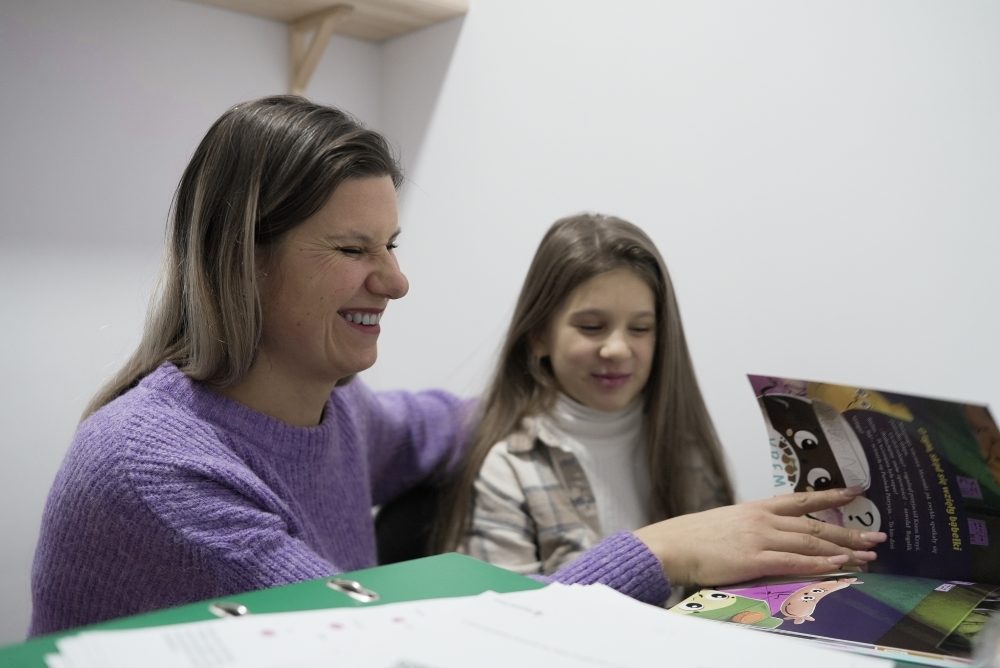
Categories: Early childhood development, Skills and work

